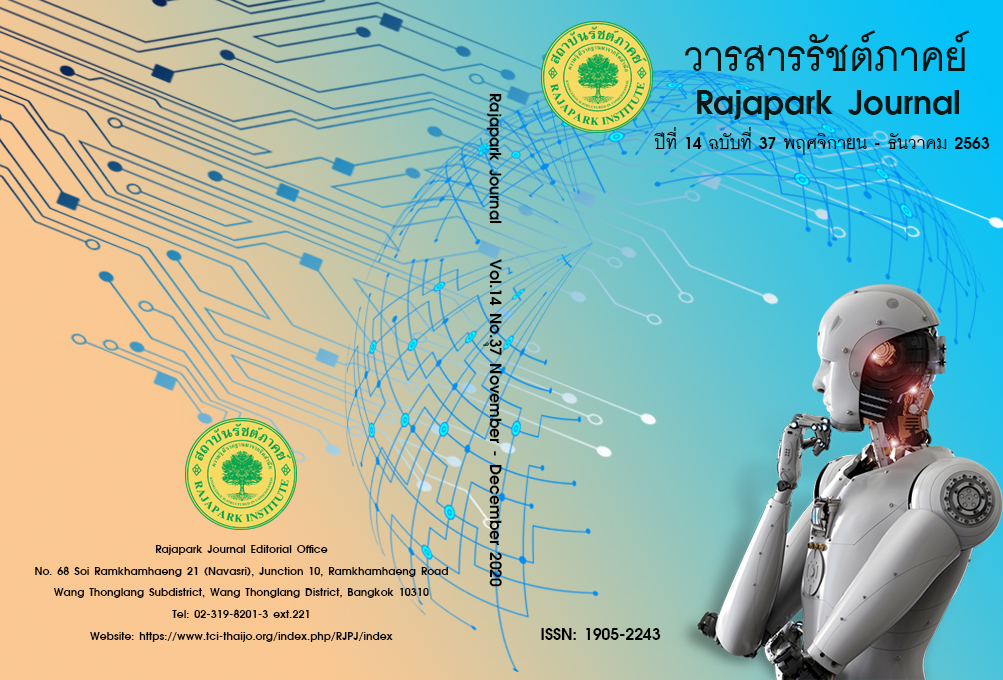ระดับการรับรู้คุณค่าของตนเอง: ผลกระทบต่อผลการเรียนรู้ของนักศึกษาครูฝึกสอน
Main Article Content
บทคัดย่อ
เพื่อเพิ่มความเข้าใจในการพัฒนาผลการเรียนรู้ของนักศึกษาครูฝึกสอนในมหาวิทยาลัยที่สัมพันธ์กับการรับรู้คุณค่าของตนเอง การวิจัยในครั้งนี้จึงมีวัตถุประสงค์เพื่อวิเคราะห์ความสัมพันธ์ของการรับรู้คุณค่าของตนเองและผลการเรียนรู้ และเพื่อวิเคราะห์เปรียบเทียบความแตกต่างของเพศในการรับรู้คุณค่าของตนเอง เป็นการวิจัยเชิงปริมาณ โดยกลุ่มตัวอย่างคือนักศึกษาครูฝึกสอน จำนวน 158 คน ในสาขาวิชาที่สังกัดคณะครุศาสตร์ มหาวิทยาลัยราชภัฏลำปาง เครื่องมือที่ใช้ในการวิจัยครั้งนี้ คือ แบบสอบถามการรับรู้ในคุณค่าของตนเอง พร้อมสอบถามข้อมูลพื้นฐานของกลุ่มตัวอย่าง ได้แก่ เพศ สาขาวิชา ผลการเรียนรู้ วิเคราะห์ข้อมูลโดยใช้การวิเคราะห์การถดถอยเชิงเส้นพหุคูณ ผลการวิจัยสรุปได้ดังนี้ โมเดลสมการถดถอยพหุคูณผลการเรียนรู้เหมาะสมกับตัวบ่งชี้การรับรู้คุณค่าของตนเองอย่างมีนัยสำคัญทางสถิติที่ระดับ .05 โดยมีตัวบ่งชี้สำคัญของผลการเรียนรู้คือ การสนับสนุนของครอบครัวและสมรรถนะการเรียนรู้ การรับรู้คุณค่าของตนเอง มีความแตกต่างกันในเพศหญิงและชาย อย่างมีนัยสำคัญทางสถิติที่ระดับ .05 ในประเด็นของการสนับสนุนของครอบครัว สมรรถนะการเรียนรู้ การแข่งขันและการยอมรับนับถือจากผู้อื่น
Article Details
ทัศนะและความคิดเห็นที่ปรากฏในวารสาร ถือเป็นความรับผิดชอบของผู้เขียนบทความนั้น และไม่ถือเป็นทัศนะและความรับผิดชอบของกองบรรณาธิการ
เอกสารอ้างอิง
Coopersmith, S. (1981). Self-Esteem Inventories. Palo Alto: Consulting Psychologist Press.
Covington, M. V. (1984). The self-Worth Theory of Achievement Motivation: Findings and Implications. The Elementary School Journal, 85(1), 4-20.
Crocker, J., Luhtanen, R. K., Cooper, M. L., & Bouvrette, A. (2003). Contingencies of Self-Worth in College Students: Theory and Measurement. Journal of Personality and Social Psychology, 85(5), 894–908.
Crocker, J., Luhtanen, R. K., & Sommers, S. R. (2004). Contingencies of Self-Worth: Progress and Prospects. European Review of Social Psychology, 15(1), 133–181.
Crocker, J., & Wolfe, T. C. (2001). Contingencies of Self-Worth. Psychological Review, 108(3), 593–623.
Geng, L., & Jiang, T. (2013). Contingencies of Self-Worth Moderate the Effect of Specific Self-Esteem on Self-Liking or Self-Competence. Social Behavior and Personality, 41(1), 95–108.
Gettinger, M., & Seibert, J. K. (2002). Contributions of Study Skills to Academic Competence. School Psychology Review, 31(3), 350–365.
Giordano, A. L., Prosek, E. A., Reader, E. A., Bevly, C. M., Turner, K. D., Leblanc, Y. N., & Garber, S. A. (2015). Collegiate misuse of prescription stimulants: Examining differences in self- worth. Substance Use and Misuse, 50(3), 358–365.
Josephs, R. A., Markus, H. R., & Tafarodi, R. W. (1992). Gender and Self-Esteem. Journal of Personality and Social Psychology, 63(3), 391–402.
Ministry of Education. (2008). Guideline for learning outcome evaluation. Bangkok: Kurusapa Printing Ladphrao.
Orth, U., & Robins, R. W. (2014). The Development of self-esteem. Current Directions in Psychological Science, 23(5), 381-387.
Park, L. E., Crocker, J., & Kiefer, A. K. (2007). Contingencies of self-worth, academic failure, and goal pursuit. Personality and Social Psychology Bulletin, 33(11), 1503–1517.
Sanchez, D. T., & Crocker, J. (2005). How investment in gender ideals affects well-being: The role of external contingencies of self-worth. Psychology of Women Quarterly, 29(1), 63–77.
Sargent, J. T., Crocker, J., & Luhtanen, R. K. (2006). Contingencies of self-worth and depressive symptoms in college students. Journal of Social and Clinical Psychology, 25(6), 628–646.
Wood, W., Christensen, P. N., Hebl, M. R., & Rothgerber, H. (1997). Conformity to sex-typed norms, affect, and the self-concept. Journal of Personality and Social Psychology, 73(3), 523–535.


